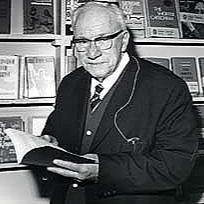Mary's Journey from Mother to Disciple

Daily Scripture
Mark 3:21, 31-34
21 When his family heard what was happening, they came to take control of him. They were saying, “He’s out of his mind!”
31 His mother and brothers arrived. They stood outside and sent word to him, calling for him. 32 A crowd was seated around him, and those sent to him said, “Look, your mother, brothers, and sisters are outside looking for you.”
33 He replied, “Who is my mother? Who are my brothers?” 34 Looking around at those seated around him in a circle, he said, “Look, here are my mother and my brothers. 35 Whoever does God’s will is my brother, sister, and mother.”
Daily Reflection & Prayer
Jesus should have had a perfect family life, right? But at least one time Jesus’ mother and brothers tried to alter how he went about his mission. The religious leaders who claimed Jesus was in league with the ruler of demons may have influenced them. Jesus was loyal to his family (cf. John 2:1-2, 12), but ultimately loyal to God’s mission. Jesus’ example reminds us that if we must choose, our highest loyalty is to God and the person God made us to be, even beyond our family.
- “Despite what pious Christian traditions have at times said about Mary, Jesus’ mother, at this stage at least she clearly didn’t have any idea what he was up to. She had brought the rest of the family… to take him away, to stop him behaving in such an outrageous fashion, bringing dishonor to the family name. They thought he was mad…. [Jesus] has a different vocation, a different mission.” * What made it important for Mary to move spiritually from “mother” to “disciple”?
- Jesus did not “disown” his human family or sever all connections. Far from it (cf. 1 Corinthians 15:7, about his brother). But he meant it when he used family language to describe his bond with all of those who do God’s will, and Mary needed to grasp that. Psychologists say people who follow their highest values, even if those upset others, are “inner-directed.” Why did Jesus have to be inner-directed to carry out his mission? When have spiritual “family members” blessed you?
Prayer
Lord Jesus, you lived through the pain of misunderstandings and the beauty of caring and loving. Shape me into a person who maximizes the beauty of all the relationships I’m a part of. Amen.
GPS Insights

William Barclay
William Barclay (1907 – 1978) was a Scottish author, radio and television presenter, Church of Scotland minister, and Professor of Divinity and Biblical Criticism at the University of Glasgow. While professor, he decided to dedicate his life to "making the best biblical scholarship available to the average reader." The eventual result was the Daily Study Bible, a set of 17 commentaries on the New Testament.
About Mark 3:21, 31-35 Barclay wrote, “His own family had come to the conclusion that he had taken leave of his senses and that it was time he was taken home….
Jesus had made it clear that the three laws by which men tend to organize their lives meant nothing to him.
(i) He had thrown away security. The one thing that most people in this world want more than anything else is just that. They want above all things a job and a position which are secure, and where there are as few material and financial risks as possible.
(ii) He had thrown away safety. Most people tend at all times to play safe. They are more concerned with the safety of any course of action than with its moral quality, its rightness or its wrongness. A course of action which involves risk is something from which they instinctively shrink.
(iii) He had shown himself utterly indifferent to the verdict of society. He had shown that he did not much care what men said about him. In point of fact, as H. G. Wells said, for most people “the voice of their neighbours is louder than the voice of God.” “What will people say?” is one of the first questions that most of us are in the habit of asking.
What appalled Jesus’ friends was the risks that he was taking, risks which, as they thought, no sensible man would take….
That was the essence of the life of Jesus, and that—not safety and security—should be the motto of the Christian and the mainspring of the Christian life.”
(From William Barclay, The Gospel of Mark (Revised Edition). Westminster John Knox Press, 1976, p. 77.)
© 2025 Resurrection: A United Methodist Church. All Rights Reserved.
Scripture quotations are taken from The Common English Bible ©2011. Used by permission. All rights reserved.
References
* Wright, N. T., Mark for Everyone (New Testament for Everyone Book 3) (p. 39). Westminster John Knox Press. Kindle Edition.
